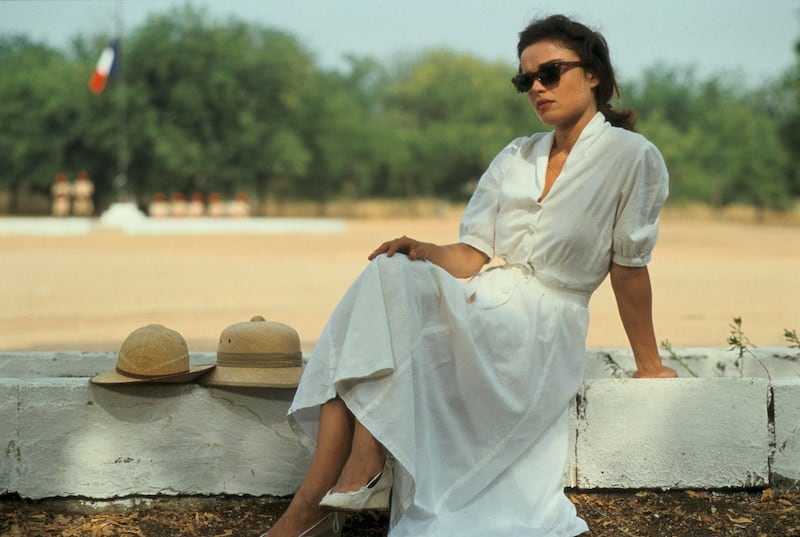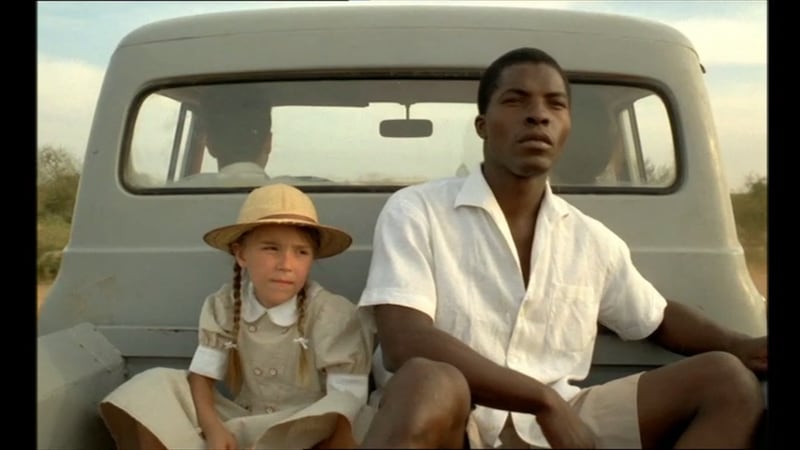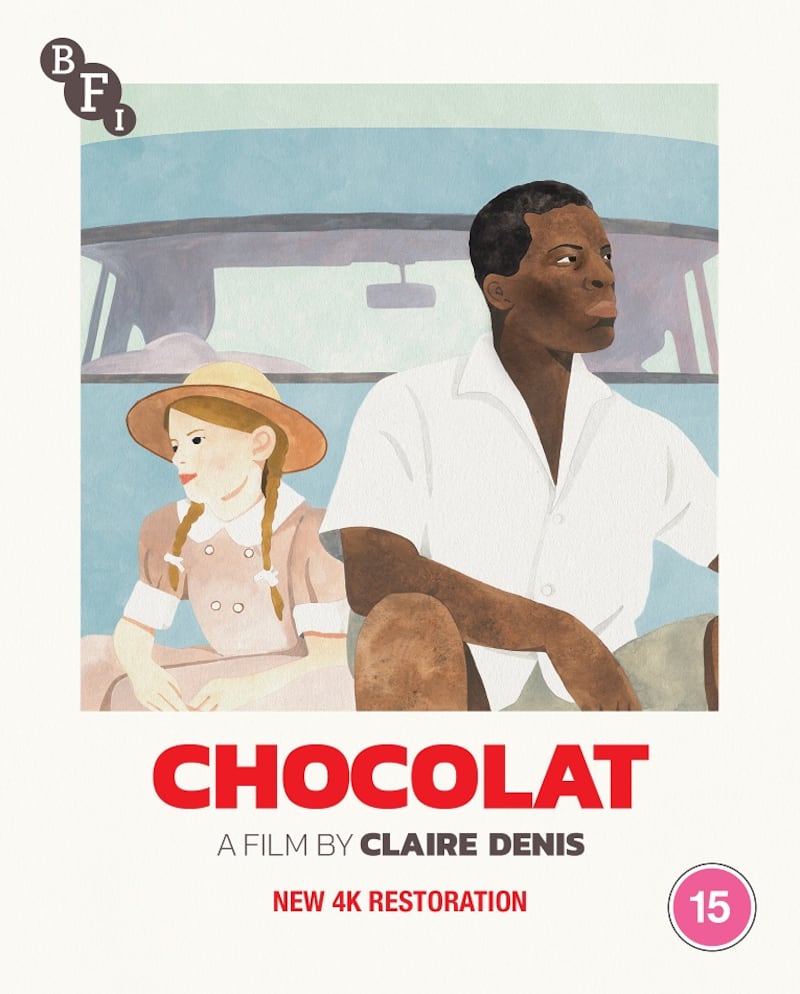IN AN age when cinematic spectacle and noise is all, it’s worth reminding yourself of the simple pleasures that a sumptuous, slow-burning film can bring every once in a while.
Chocolat, director Claire Denis’ deeply personal study of two lives entwined in the colonial power struggle in Cameroon, first appeared in 1988 and returns this month on Blu-ray in a dazzling new 4K restoration from the British Film Institute.
A deep, moving study of memory, race and sexual repression, it’s a lush creation - and this is the finest way to consume it, coming as it does with fresh audio commentary from film scholar Kate Rennebohm and a chat with Claire Denis herself among the extras.
It’s the tale of France (Mireille Perrier), a young affluent woman reflecting on her life who returns to Mindif in Cameroon, the remote colonial outpost where she grew up during the final days of French rule. On the journey, she remembers the complex relationships she experienced there more than 30 years previously with her distant and distracted mother, Aimee (Giulia Boschi), and her often absent government officer father, Marc (Francois Cluzet).
In protracted flashback, we witness this period through the eyes of the young France (played by Cecile Ducasse) as she recalls the political upheaval and racial tensions that pervaded everything the family did. Most of all, she recalls the powerful bond she built with her family’s ‘houseboy’, Protee (Isaach De Bankole), who took care of her all those years ago.

Read more:
- Cult Movies: Western-informed Witchfinder General still the most singular British horror film everOpens in new window
- Cult Movies: Nothing compares to The Omen, which still delivers demonic delights nearly 50 years onOpens in new window
- Cult Movies: Michael Powell’s Peeping Tom lifts the curtain on the voyeurism of cinemaOpens in new window

We learn of the simmering forbidden sexual tension that existed between Protee and Aimee and that tension reaches boiling point when a group of travellers from a crashed plane arrive on the scene bringing with them their openly racist views that the family must deal with.
The ugliness of racism contrasts starkly with the beauty of the African countryside as France revisits her past and the director allows it all to unfold gently and without overstatement on screen.

Leaning heavily on her own personal childhood experiences of colonial oppression to fashion this beautiful debut feature, Denis said “I just tried to describe the visible part of the iceberg.
“In Africa, nothing is ever said, but the weight of things is always there”.
That overbearing weight hangs heavy over every scene here, rendering Chocolat a sometimes ponderous viewing experience, albeit one rich in visual style and meaning.
The symbolism is a bit heavy handed at times - calling your main character ‘France’ is hardly subtle, after all - and in the Adonis-like figure of Protee, Denis creates a focal point for discussions of race and segregation, but at its heart, this is a story of frustration and repression that runs much deeper than just political allegory.

A study of memory, desire and thwarted dreams this is a film that everyone can identify with. The wilfully slow pacing employed throughout may put off many, but go with the woozy, often dreamlike flow, and you’ll be richly rewarded.
A slow-burning gem of a film, it oozes raw sensuality and manages to evoke the sense of a radically changing Africa beautifully.
Sweet and luxurious, Chocolat is a little taste of cinematic heaven.








